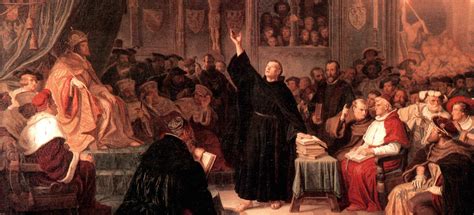The Reformation, a pivotal period in European history, marked a significant departure from established religious practices and beliefs. Here’s a comprehensive definition of the Reformation:

The Reformation was a series of religious, political, and cultural changes that took place in Europe in the 16th century, challenging the authority of the Catholic Church and leading to the establishment of Protestantism.
Key Features of the Reformation
- Religious Dimension: The Reformation sought to reform Catholic doctrine and practices, emphasizing the importance of individual faith, the authority of Scripture over tradition, and the role of salvation through faith alone.
- Political Dimension: The Reformation challenged the political power of the Catholic Church and its control over secular affairs, leading to conflicts between Protestants and Catholics and ultimately to religious wars.
- Cultural Dimension: The Reformation influenced art, literature, and education, promoting a sense of individualism and literacy among the population.
Key Figures in the Reformation
- Martin Luther: A German monk and theologian, Luther is often credited with sparking the Reformation through his publication of the Ninety-Five Theses in 1517.
- John Calvin: A French theologian, Calvin developed the doctrine of predestination and established a strong Protestant community in Geneva.
- Henry VIII: The King of England, Henry broke away from the Catholic Church and established the Church of England in 1534.
Causes of the Reformation
Multiple factors contributed to the Reformation, including:
- Renaissance Humanism: The revival of classical learning and emphasis on human reason and individualism.
- Religious Corruption: Criticisms of the Catholic Church’s wealth, corruption, and practices.
- Printing Press: The invention of the printing press facilitated the rapid dissemination of ideas and facilitated the spread of Reformation ideas.
- Political and Social Tensions: Conflicts between the Catholic Church and secular rulers, as well as social and economic grievances, played a role in the Reformation.
Impact of the Reformation
The Reformation had a profound impact on Europe, including:
- Religious Division: The Reformation led to the establishment of several Protestant denominations, such as Lutheranism and Calvinism, resulting in religious fragmentation.
- Religious Wars: Conflicts between Protestants and Catholics erupted throughout Europe, with the Thirty Years’ War (1618-1648) being one of the most devastating.
- Rise of Nationalism: The Reformation weakened the authority of the Catholic Church, contributing to the rise of nation-states and the growth of national identities.
- Scientific Advancement: The emphasis on reason and Scripture in Protestantism fostered an environment conducive to scientific inquiry and innovation.
Table 1: Major Protestant Reformers
| Reformer | Nationality | Date of Birth | Key Teachings |
|---|---|---|---|
| Martin Luther | German | 1483 | Justification by faith alone, Sola Scriptura |
| John Calvin | French | 1509 | Predestination, Calvinism |
| Andreas Karlstadt | German | 1480 | Sacramentalism, iconoclasm |
| Huldrych Zwingli | Swiss | 1484 | Symbolism in the Eucharist |
Table 2: Causes of the Reformation
| Factor | Description |
|---|---|
| Renaissance Humanism | Emphasis on reason and human potential |
| Religious Corruption | Wealth, indulgences, and criticism of clergy |
| Printing Press | Dissemination of Reformation ideas |
| Political Tensions | Conflicts between Church and secular rulers |
Table 3: Impact of the Reformation
| Effect | Description |
|---|---|
| Religious Division | Protestant denominations and fragmentation |
| Religious Wars | Conflicts between Protestants and Catholics |
| Rise of Nationalism | Weakening of Church authority |
| Scientific Advancement | Emphasis on reason and Scripture |
Table 4: FAQs on the Reformation
| Question | Answer |
|---|---|
| What was the spark of the Reformation? | Martin Luther’s publication of the Ninety-Five Theses |
| Which King established the Church of England? | Henry VIII |
| What was the main doctrine of Calvinism? | Predestination |
| What was the significance of the printing press in the Reformation? | It facilitated the spread of Reformation ideas |
Conclusion
The Reformation was a transformative period in European history, challenging the authority of the Catholic Church and leading to the establishment of Protestantism. Its religious, political, and cultural implications continue to shape Christianity and the world today.
